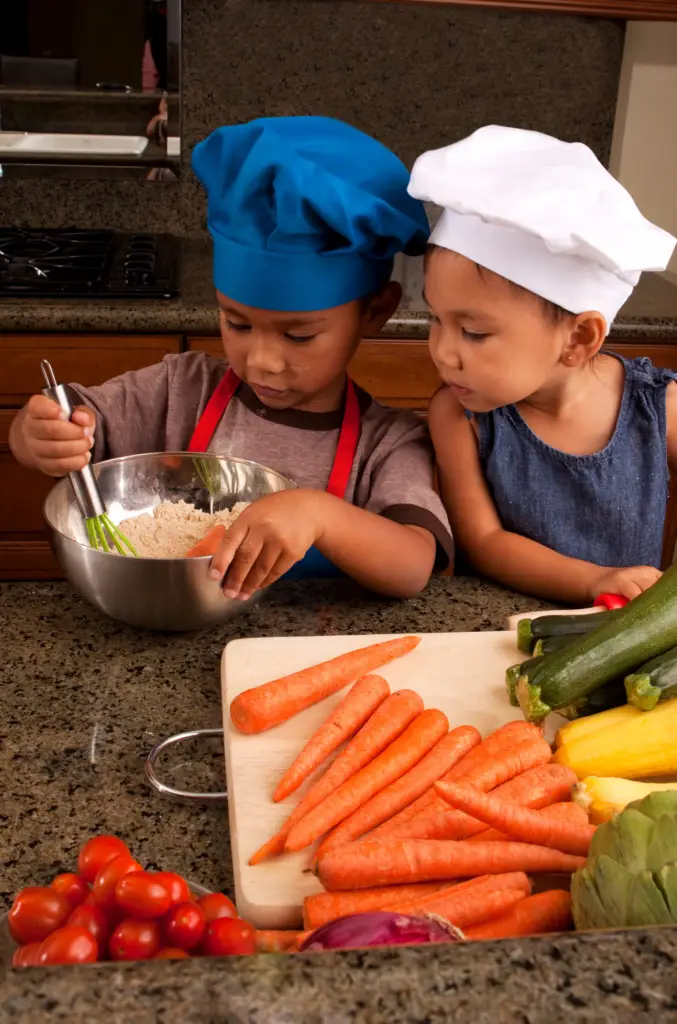This article has been written by Daniel, an intern with the Nutrition and Physical Activity Division at the Alabama Department of Public Health, a partner of the Alabama Farm to ECE Coalition.
Daniel Martin is a graduate student at Auburn University pursuing a master’s degree in Exercise Performance and Health Optimization while also completing a dietetic internship to become a registered dietitian. Daniel graduated in the spring of 2023 with a degree in Nutrition: Dietetics and a degree in Exercise Science to become a sports dietitian.
March is National Nutrition Month, which means it’s a great time to talk to your kids about the importance of eating nutritious meals to promote strong growth, proper sleep, and a healthy lifestyle. A fun and interactive way to start the conversation would be to have kids get involved in the kitchen. Kids who help in the kitchen frequently choose healthier meals and know how to pick them out (1). Here are some tips for introducing kids to new foods in the kitchen!
Age-Appropriate Tasks for Kids in the Kitchen
Having kids help prepare food is a great opportunity for them to get involved and have fun in the kitchen. Allow them to complete age-appropriate tasks such as washing fresh fruits and vegetables, cracking eggs into a bowl, wiping tabletops, mixing ingredients, and serving food on plates.
With adult supervision and the correct tools, children can also help with slicing, dicing, and mashing fruits and vegetables for a recipe. When serving, encourage kids to use their imagination when placing food and create fun designs like smiley faces, stick people, flowers, and more. This gives them the chance to develop important cooking skills at an early age while also using their creativity.

Teaching Food Safety in the Kitchen

Having kids help prepare food in the kitchen is also a great opportunity to teach them about food safety. Emphasize the importance of handwashing, pulling back long hair, not licking fingers, and not eating raw ingredients. You can also teach food safety basics like keeping raw ingredients separate from cooked ingredients and proper refrigeration.
Setting a foundation for these food safety habits will help them be confident in the kitchen as they get older. Getting kids involved early and often in food preparation allows them to develop healthy habits in the kitchen that they can build on throughout their lives.
Cooking can be a fun activity for kids and adults and can help with the introduction of new foods. Try these tips in the kitchen this National Nutrition Month!
Resources
1. Chu YL, Farmer A, Fung C, Kuhle S, Storey KE, Veugelers PJ. Involvement in home meal preparation is associated with food preference and self-efficacy among Canadian children. Public Health Nutrition. 2013;16(1):108-112. doi:10.1017/S1368980012001218
Ellis, E. (2022). Teaching kids to cook. Academy of Nutrition and Dietetics: eatright.org. https://www.eatright.org/food/home-food-safety/safe-cooking-and-prep/teaching-kids-to-cook

